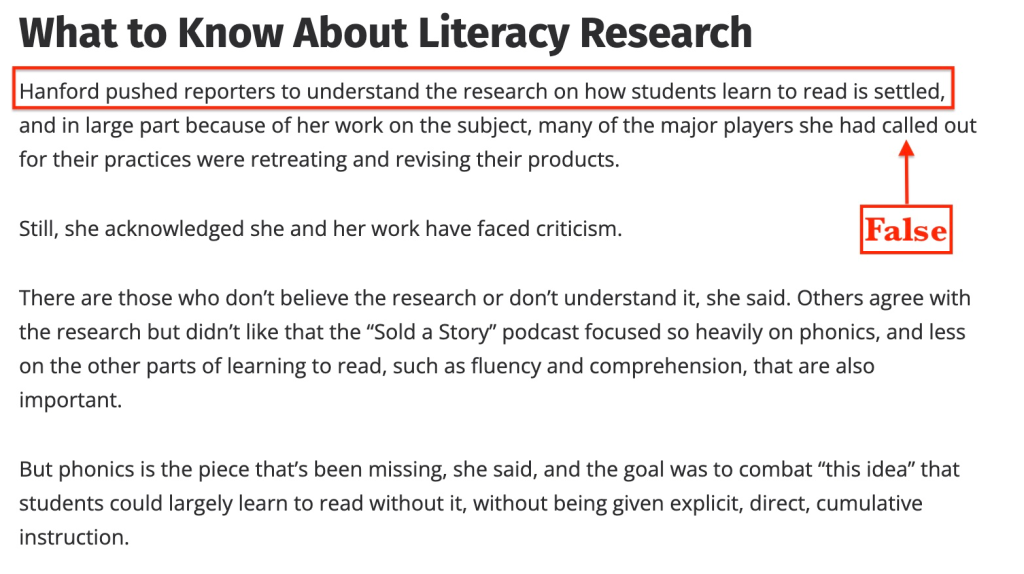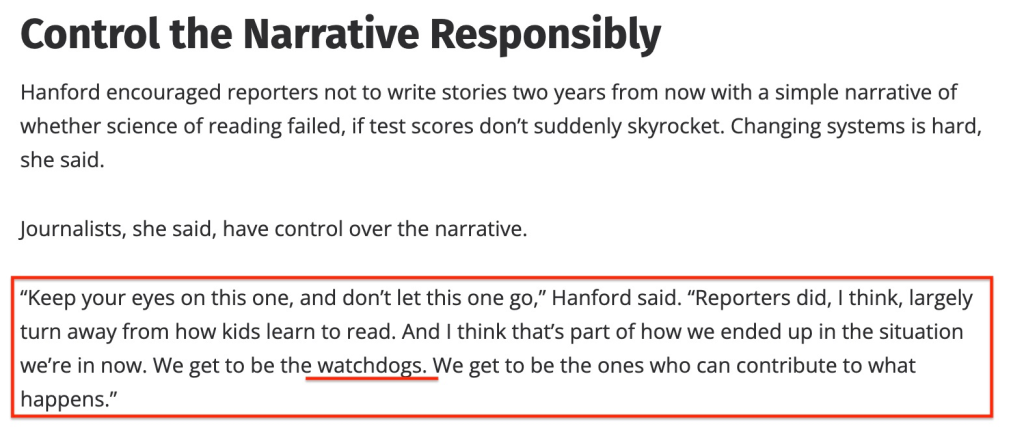[Header Photo by Patrick Hendry on Unsplash]
Regardless of your level of optimism, there simply is no other conclusion to draw from over forty years of educational crisis and reform: Education reform has almost nothing to do with improving education for students, but education reform has become an industry.
And one of the most powerful engines driving the crisis/reform industry in education is education journalism.
Education journalists only write two kinds of stories about education: Education as failure (Crisis!), and education miracles.
Interesting is that both are provable false narratives.
Yet, these stories endure because “[v]iewing education as being in more or less permanent crisis” (Edling, 2015) creates market and political profit for media, private education corporations, and politicians.
As a simple fact of logic, consider that for at least the last century, on every standardized test in every content area, students in poverty as a group have scored significantly lower than more affluent students.
Over that century, the teachers, instructional practices, programs, and curriculums/standards have changed dozens of times and have never been coherent at any one point across the US.
The only constant, of course, has been the economic inequity of the populations of students being taught and tested.
Yet, what have the media and political leaders focused on almost exclusively in the forty-plus-years of intense accountability reform (over what can be called at least half a dozen cycles in those decades)?
Instruction, curriculum/standards, and programs.
Why?
Teacher training churn, standardized test churn, and program churn are industries, and there is profit in constant churn.
Never has it been more clear that education reform is industry: “The administrations in charge,” writes Gilles Deleuze in Postscript on the Societies of Control, “never cease announcing supposedly necessary reforms: to reform schools, to reform industries, hospitals, the armed forces, prisons” (p. 4).
And never has it been more clear that education journalism is deeply invested in that churn, in manufacturing perpetual crisis:
Just within the past twenty years, Gates+ money has incubated several new education-only media outlets, such as Chalkbeat, EdReports, EdSurge, Education Next, Ed Post, FutureEd, and The 74. Gates+ money has also substantially boosted the efforts of preexisting education-only media organizations, such as EdSource, Education Week, the Education Writers Association, the Thomas B. Fordham Institute, and the Hechinger Report. All told, this accounts for almost all large-audience, US, K–12-education-only print media outlets, other than those tied to the traditional public education establishment.
Have the Gates Foundation and Its Allies Purchased US Education Journalism?
I suspect no one embodies education reform as industry as well as Bill Gates, education reform hobbyist.
And, for example, nothing better exemplify what the true commitment in education journalism is better than the Education Writers Association and the current darling of education misinformation, Emily Hanford:


Manufacture a crisis with a melodramatic story, and then steel the troops for the inevitable outcome so that everyone can circle back to yet another crisis and more reform.
There is the sound of profit in the background as journalists as “watchdogs” announce more and more failure and crisis among school, teachers, and students.
The real literacy crisis is that too many people cannot read the writing on the wall. Or more likely, too many people are blinded by the profit of education reform as industry to even see the writing on the wall.
Thought Experiment 1
If you wonder if or how money matters, consider that the Department of Education Reform at the University of Arkansas is funded by Walton money. The Walton’s are significant school choice and charter school proponents. The “research” coming out of the DER is overwhelming positive about school choice and charter schools.
Coincidence?
Thought Experiment 2
England passed reading reform mandating systematic phonics for all students in 2006 (although their media and political leaders persist in crying “reading crisis”).




